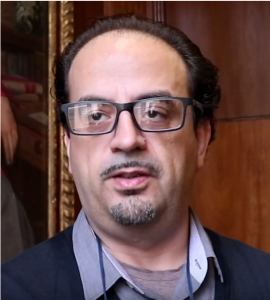The American Physical Society Division of Particles and Fields has given its 2019 Early Career Instrumentation Award to two scientists on the international Deep Underground Neutrino Experiment, hosted by Fermilab.
Ana Amelia Machado and Ettore Segreto, both of the University of Campinas in Brazil, are recognized for their invention and development of the ARAPUCA photon detector, a novel and effective tool for measuring scintillation light in liquid-argon detectors. ARAPUCA technology is currently a baseline technology for the DUNE neutrino detector and is currently employed in Fermilab’s Short-Baseline Near Detector. It has been successfully tested in the one of the DUNE prototype detectors at CERN.
The APS Division of Particles and Fields bestows the Instrumentation Early Career Award annually to honor exceptional contributions to instrumentation advancing the field of particle physics through the invention, refinement, or application of instrumentation and detectors, specifically to achievements having a significant impact at an early career stage. The award recognizes accomplishments in the conceptualization and development of unique instrumentation that have made a significant impact on the field, among other areas.
Fermilab is a DOE national laboratory funded by the Office of Science.





